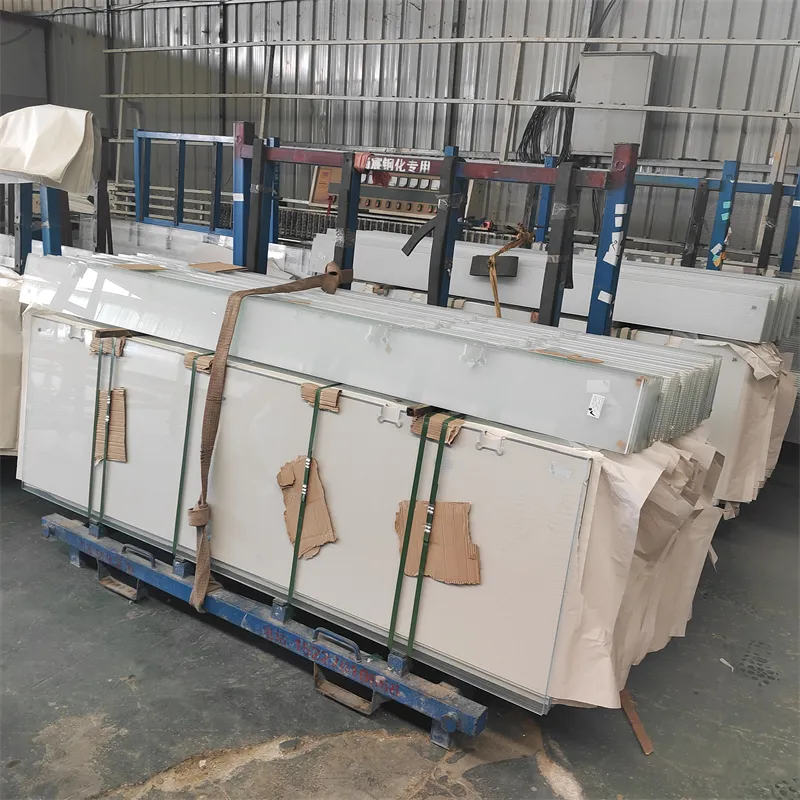Dec . 17, 2024 17:24 Back to list
tempered glass features
The Features of Tempered Glass An In-Depth Look
Tempered glass, also known as toughened glass, has become a preferred choice in various applications due to its remarkable strength and safety features. Produced through a process of extreme heating and rapid cooling, this type of glass can withstand high levels of stress and impact, making it a pivotal material in modern architecture, automobiles, and everyday consumer products. In this article, we will explore the key features of tempered glass that distinguish it from standard glass.
Enhanced Strength
One of the most significant features of tempered glass is its enhanced strength compared to regular glass. The tempering process involves heating the glass to over 600 degrees Celsius and then cooling it rapidly. This method creates a compressive stress on the surface of the glass, which greatly enhances its overall strength. As a result, tempered glass is approximately five to six times stronger than its untempered counterpart. This strength allows it to withstand high pressure and impacts, making it suitable for various applications, including shower doors, glass doors, and facades.
Safety Benefits
Safety is another prominent feature of tempered glass. In the event of breakage, tempered glass shatters into small, blunt pieces rather than sharp shards. This characteristic significantly reduces the risk of injury, making it a safer option in environments where human interaction is common. For instance, in public spaces such as shopping malls or schools, the use of tempered glass minimizes potential hazards from breakage, thereby promoting a safer atmosphere.
Thermal Resistance
Tempered glass also boasts excellent thermal resistance. Its ability to endure extreme temperature fluctuations makes it ideal for applications exposed to heat. For example, tempered glass is commonly used in ovens and fireplace doors because it can tolerate high temperatures without breaking. This thermal stability allows it to be a reliable choice for various architectural elements, such as skylights and external windows, especially in regions with drastic temperature changes.
tempered glass features

Aesthetic Appeal
Beyond its functional advantages, tempered glass offers aesthetic versatility. It can be manufactured in various thicknesses, colors, and finishes, allowing designers and architects to create visually striking applications. The clarity of tempered glass provides unobstructed views, making it a popular option for windows, railings, and partitions. Additionally, tempered glass can be combined with other materials, such as metal or wood, to achieve a modern and stylish look in residential and commercial interiors.
Easy Maintenance
Another appealing feature of tempered glass is its ease of maintenance. The smooth surface of tempered glass makes it resistant to dirt and grime buildup, allowing for straightforward cleaning. Most glass cleaners and soft cloths work well without causing scratching or damage. This low-maintenance characteristic is particularly beneficial in high-traffic areas or locations prone to accumulation of dust and fingerprints, such as glass doors and counters.
Eco-Friendly Option
In today’s environmentally conscious world, tempered glass is also recognized for its eco-friendliness. It is a recyclable material, and its production process often involves using fewer resources than traditional glass materials. The longevity and durability of tempered glass further contribute to its sustainability, as it reduces the need for frequent replacements, thus minimizing waste.
Conclusion
In summary, tempered glass showcases a unique combination of strength, safety, thermal resistance, aesthetic appeal, ease of maintenance, and eco-friendliness. These features make it an ideal choice for a wide range of applications, from residential construction to automotive design. As technology advances and the demand for durable and safe materials increases, the popularity of tempered glass is likely to continue growing, cementing its status as a staple material in modern design solutions. Whether you’re considering renovations or new constructions, understanding the benefits of tempered glass can help you make informed decisions that prioritize safety, durability, and style.
-
Safety and Style with Premium Laminated Glass Solutions
NewsJun.24,2025
-
Reinvents Security with Premium Wired Glass
NewsJun.24,2025
-
Premium Float Glass Line for Modern Architecture
NewsJun.24,2025
-
Low Emissivity Glass for Energy-Efficient Architecture
NewsJun.24,2025
-
High-Performance Insulated Glass Solutions for Modern Architecture
NewsJun.24,2025
-
Elevates Interior Style with Premium Silver Mirror
NewsJun.24,2025
Related PRODUCTS














